The Atlas of Irish Mathematics: Galway before 1900 (Dec 2018)
To celebrate the 4th anniversary of the creation of AIMM, which now accounts for over 4000 people, and to mark the end of 2018, we highlight over 50 maths people associated with the county and university town of Galway.
Specifically we focus on those initial university education (or equivalent) was completed by the end of the 19th century. Future blogs will advance the story to 1999. While most of those documented here were educated in Galway, or taught there in the period in question, some were born in the county and educated elsewhere. As usual, in addition to mathematicians there are physicists and some engineers of interest.
Queen's College, Galway (QCG) was opened in 1849, having been chartered in 1845 like its sister schools in Belfast and Cork. Those three colleges were conceived as the Queen's University of Ireland (QUI), which was dissolved in 1882 and replaced by Queen's University Belfast (QUB) and the new umbrella organisation the Royal University of Ireland (RUI), the latter including the former Galway and Cork Queen's Colleges, and also University College Dublin (UCD) and some smaller colleges. Queen's College Galway later became University College Galway (UCG, 1908), and more recently the National University of Ireland at Galway (NUIG, date).
The 1850 Synod of Thurles had proclaimed the then new colleges as being dangerous to faith and morals for Catholics, which led to low enrollment at Galway (and the other new colleges) from that part of the population for several decades.
From 1882 on, anybody could present themselves for examinations (and hence degrees) to the RUI, regardless of which (if any) college they attended. (On rare occasion people who had studied privately, or at one of the smaller colleges, did so.) Until 1908, this was how all undergraduate Queen's Galway degrees were earned.
The early history of the department of maths at Galway has been explored in print in some depth by Seán Tobin, who worked there for 40 years from 1955, also serving as department head for many years. He had done his BA and MA there earlier, before doing his PhD with Graham Higman in Manchester. This can be read in the appropriate chapter (pages 159-183) of the book From Queen's College to National University: essays on the academic history of QCG/UCG/NUI, Galway (Four Courts Press, 1999), edited by Tadhg Foley. There follows a relevant chapter (pages 184-217) on Natural Philosophy/Physics, by Tom O'Connor. See also "Some Observations Relating to Appointments at Queen's College, Galway, 1849-50" by James Mitchell in the Journal of the Galway Archaeological and Historical Society (Vol. 53, 2001, pages 156-161).
Within the maths department in that period, the serving professors of mathematics were John Mulcahy (1849-1853, there was also one before him who "left before he started"), George Allman (1853-1893) and A. C. Dixon (1893-1901). The first 5 maths graduates were William Lupton, Patrick F. Ford(e), Edmund McGuire, Daniel Tierney, John H. Moore. Little is currently known about many of the Galway maths graduates pre 1900, even where or when they were born, but for others some career hints have been detected.
Some of the people highlighted below were born somewhere in the county of Galway, but trained elsewhere, in particular this applies to those educated before 1850. While a good many of the people considered ended up in academia, or teaching at prestigious schools, quite a few served in the civil service, or pursued careers in law or medicine, and still others became clergymen. They are presented in chronological order by birth.
Generally, MA degrees from QCG (like those from Belfast or Galway) were earned by examination just as BAs were. At Cambridge, MAs could be obtained 3 or more years after BAs upon simple payment of a fee; those degrees didn't indicate further study or completion of any additional examinations, research or theses. In the year 1882, as the QUI was replaced by the RUI (and QUB), numerous MAs were awarded by Queen's Galway in the "unearned" category. A good number of the recipients had graduated with BA degrees many years before, and some had in fact died. On the other hand, some of the 1882 MAs below are known to have been by examination, and this is indicated where known.
From 1900 on, the story broadens and deepens considerably. It will take several future blogs to cover the ground there.
Comments and corrections are, as always, welcome. As are more photographs of the forgotten faces from the past!
Thanks to D.L. MacLaughlan-Dumes (UCLA), Paul Greaney (NUIG), Anne van Weerden (Utrecht) and especially Olivia Bree (DCU) for genealogical assistance.
Last updated 9 Feb 2024.
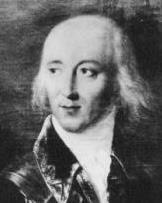 |
1. Mathematician, thermodynamics pioneer and military man Patrick (Patrice) d'Arcy (1725-1779) was born 27 September in Kiltullagh Castle, Galway. He was educated privately in Paris, studying with Jean-Baptiste Clairaut, following which he had a successful career in the French army. He is remembered for his contributions to dynamics, especially angular momentum. |
 |
2. John Mulcahy (1809-1853) was born (probably in July) in Cork city, and was educated at TCD (BA 1830, LLB 1850, LLD 1851), which was unusual for a Catholic at that time. He is believed to have tutored there before becoming the first actual professor of maths at the new Queen's College, Galway in 1849 (he'd first been appointed professor of natural philosophy but got the maths post when the original appointee Michael Roberts below quit before the college opened). He also served as dean of the science division of the faculty of arts. Sadly, he died a few years later, having just published the book Principles of Modern Geometry (Hodges and Smith, 1852, second edition 1862). His father Tim had played a role in the story of Robert Murphy. |
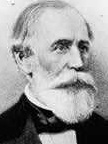 |
3. W. Bindon Blood (1817-1894) was born 20 January in Cranagher, near Ennis, Clare, and was educated at TCD (BA, 1838). His career was spent as an engineer, first on railways in Britain, then for a decade as professor of civil engineering at Queen's Galway (1850-1860). His stress analysis was key in the design of the Boyne viaduct. Later on, he was a pioneer in the early days of cycling. QUI awarded him DSc (hon) in 1882. |
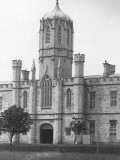 |
4. Michael Roberts (1817-1882) was born 18 April in Cork city, and was educated at TCD (BA 1837, MA 1848), earning one of the first maths degrees there (those had been introduced in 1835). He was actually the first person to be appointed professor of maths in Galway in 1848, but resigned before taking up the post, and instead spent his career at TCD. He published regularly, in particular on geodesics on ellipsoids. |
 |
5. Robert Sinclair (1822-1875) was born in Galway, and is believed to have grown up in Killiney, Dublin. He was educated at TCD (BA 1846, MA 1852), where he was also a maths scholar. Most of his career was spent in India, first teaching at Elphinstone College from its opening in 1856, and later rising to the rank of registrar at Bombay University and Director of Public Instruction for that city. |
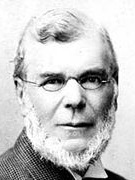 |
6. George Allman (1824-1904) was born 28 September in Dublin, and was educated at TCD (BA, 1843). He was professor of maths at Queen's Galway for 40 years, following the early death of John Mulcahy, publishing the well-regarded book Greek Geometry from Thales to Euclid (Dublin University Press, 1889). He also made numerous contributions to the ninth edition of the Encyclopaedia Britannica. |
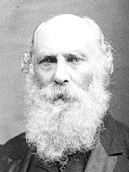 |
7. Physicist George Johnstone Stoney (1826-1911) was born 15 February in Oakley Park near Birr, Offaly. He was educated at TCD (BA 1847, MA 1852). He worked at Birr, then taught at Queen's Galway (1852-1857), before serving as secretary of QUI until its dissolution in 1882 then as superintendent of Civil Service Examinations for another decade. He is credited with coining the word electron in 1891. TCD awarded him an honorary DSc in 1902. |
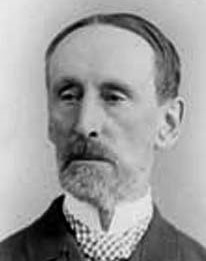 |
8. Morgan Crofton (1826-1915) was born 27 June in Dublin and was educated at TCD (BA 1847). He was the first professor of natural philosophy at Queen's Galway, in 1849. However after a few years he moved to France for a while, then taught at the Royal Military Academy in Woolwich for almost 3 decades, where he authored the book Lectures on the Elements of Applied Mechanics (1877) and co-authored Tracts on Mechanics (1881?). He ended his career teaching at UCD (1884-1895). TCD awarded him an honorary DSc in 1898. |
 |
9. Arthur Hill Curtis (1827?-1886) was born in Dublin, and was educated at TCD (BA 1849, MA 1853, LLD 1862). He was professor of natural philosophy at Queen's Galway (1857-1879), where he authored books on both analytic geometry and gryoscopes, and then served as assistant commissioner for National Education until his death. In 1882, Queen's Belfast gave him an honorary DSc. |
 |
10. William Lupton (1830-1876) was educated at Queen's Belfast (BA 1852, MA 1853), indeed he was a member of the first class to graduate from there. He then served as the registrar at Queen's Galway, followed by a stint as professor of jurisprudence and political economy. He died in his mid 40s. |
 |
11. Edward Townsend (1831-1919) was from Cork, and was educated at TCD (BA 1853, MA 1856). He followed Bindon Blood above as professor of engineering at Queen's Galway, staying almost half a century, and serving as registrar. He played a key role in the design of the Galway to Clifton railway. RUI awarded him an honorary DSc in 1882. |
 |
12. Patrick F. Ford(e) (1831?- ) is believed to have been born near Scull, Cork. He was educated at Queen's Galway (BA 1854, MA 1856), where he held a senior scholarship in maths. Nothing is known about his career.
|
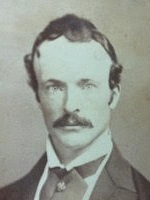 |
13. Martin Gardiner (1833?-1899) said he was born in Dublin, and he attended Queen's Galway 1850-1852. While he did not graduate, he later claimed to have an engineering diploma from there. He worked as an engineer or surveyor in Canada in the 1850s, and in Australia from the 1870s on. In the 1860s he taught maths at St John's College in Sydney, and published on the topic frequently. TCD geometer Richard Townsend thought highly of some of his work. |
 |
14. Edward McGuire/Maguire (1825?-1907) was described as a native of Cavan in an obituary. Other sources associate his early days with Fermanagh and Monaghan. He was one of the first two maths graduates of Queen's, Galway (BA 1854, MA 1882?), having earlier attended a seminary for a while. He then pursued medicine (Edinburgh 1859) and spent his career as a doctor in Mayo. His angle trisection attempt from 1851 survives. |
 |
15. Matilda Coneys (later Fitzsimon, 1834-1918) was born in Salthill, Galway, being baptised on 27 June. She attended the Royal College for Science in Ireland in the early 1860s and also the Museum of Irish Industry, where she excelled in chemistry and maths. She taught maths in England into the early 1900s, and corresponded with David Livingstone. Knowing Their Place / Women & Science / Museum of Irish Industry / Irish Times |
 |
16. Daniel Tierney (1836?-1892) was educated at Queen's Galway (BA 1856, Dip Eng 1857, BE 1882), where he had held a senior scholarship in maths. His career was presumably spent in engineering; his last years were spent in Bray, Wicklow.
|
 |
17. John H. Moore was educated at Queen's Galway (BA 1858). Nothing else known.
|
 |
18. James O'Kinealy (1839-1903, brother of Peter below) was born in Calcutta, India, and grew up in Cavan town, where his father James was engineer. He was educated at Queen's Galway (BA 1858, MA & hon LLD 1882), and spent his career as a judge in India. He published maths in the London, Edinburgh, and Dublin Philosophical Magazine in the 1870s. He was also an Arabic scholar. |
 |
19. Henry Thynne was born in Ennistymon, Clare, and was educated at Queen's Galway (BA 1859, LLB 1873, MA & LLD 1882), where he had a senior scholarship in maths. His career was spent in law.
|
 |
21. AElian Armstrong King (1843-1923) was born in Newcastle, Northumberland, England, and was educated at Queen's Galway (BA 1862, MA 1882), where he had a senior scholarship in maths. His career was spent as a judge in Ceylon. |
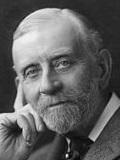 |
22. John Atkinson (1844-1932) was born 13 December in Drogheda, Louth, and was educated at Queen's Galway (BA 1861, LLB 1865, MA & LLD 1882). He lectured in maths at Galway (1861-1863), then switched to a career in law. |
 |
23. John Griffin was educated at Queen's Galway (BA 1863), where he had a senior scholarship in maths. Nothing else known. |
 |
24. Robert L. Foreman was educated at Queen's Galway (BA 1864) where he had a senior scholarship in maths. His career was spent in the civil service in India. |
 |
25. Henry Deane was educated at Queen's Galway (BA 1865, MA 1882) where he had a senior scholarship in maths. Nothing known. |
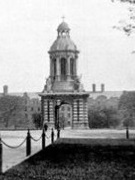 |
26. Richard Biggs (1847-1904) was born 10 March in Devizes, Wiltshire, England and was educated at TCD (1868, MA 1871, LLD 1874). His career was spent teaching in Ireland, first at the Chesterfield School in Birr, Offaly, then for over a decade as headmaster of the Grammar School in Galway, and from 1894 on as the headmaster at Portora, in Fermanagh. He died in a canoeing accident on Lough Erne.
|
 |
27. William Brooke was educated at Queen's Galway (BA 1867, MD 1874, MA 1882) where he had a senior scholarship in maths. His career was spent in medicine. |
 |
28. Ralph Francis Glover (1847?-1881) was born in Castlerea, Roscommon, and was educated at Queen's Galway (BA 1869, MA 1882) where he had a senior scholarship in maths. He worked in a bank in Adelaide, Australia, dying young (and before receiving the MA awarded by QUI). |
 |
29. James Earl Oram (1847-1900) was born 18 August in London and was educated at Queen's Galway (BE 1868, MA 1882). In the 1870s he served as professor of maths, natural history, engineering and astronomy at Kingston College, and by the 1880s he was back in Dublin working as an engineer. |
 |
30. John O'Byrne Croke (1848-1918) was born in Feenagh, north of Drumcolliher, Limerick (baptised 5 April) and was educated at Queen's Galway (BA 1871, MA 1873) where he had a senior scholarship in maths. He taught a variety of subjects for 3 decades at Blackrock College, and wrote several books, including on logic (1906). [photo and info courtesy of Blackrock College archives] Lineage / Books |
 |
31. Peter O'Kinealy (1848-1914, brother of James above) was educated at Queen's Galway (BA 1874, MA & LLB 1875, LLD 1882) where he had a senior scholarship in maths. His career in law was spent in India. |
 |
32. Judge and politician John Gordon (1849-1922) was born 23 November in Londonderry, and was educated at Queen's Galway (BA 1873, LLB 1876, LLD 1882) where he had a senior scholarship in maths. His career was spent in law and politics, serving as MP and also as Attorney General of Ireland. |
 |
33. John Henry Harrison (1850?-1897) was educated at Queen's Galway (BA 1870, MA 1872) where he had a senior scholarship in maths. His career was spent in the civil service in India. |
 |
34. Patrick Concannon (1851??-?) was educated at Queen's Galway (BA 1871, MA 1874) where he had a senior scholarship in maths. Nothing else known. |
 |
35. Michael Mullally (1850?-1890) is believed to have been born in Woodford, Galway, and was educated at Queen's Galway (BA 1871, MA 1873) where he had a senior scholarship in maths. Later, he was an inspector of national schools in Woodford, Galway. He died quite young. |
 |
36. Charles Joseph McCarthie (1851?-) was educated at Queen's Galway (BA 1871, MA 1882) where he had a senior scholarship in maths. Nothing else known. |
 |
37. William James Lowe (1853?-?) was born in Down and ws educated at Queen's Galway (BSc 1880, MSc 1881) where he had a senior scholarship in maths. His career was as a clergyman. |
 |
38. Michael Kelly (1853??-?) was educated at Queen's Galway (BA 1874, MA 1876, MD 1882) where he had a senior scholarship in maths. His career was in medicine. |
 |
39. Robert J. Shore (1856-?) was born 10 November in Sixmilebridge, Clare, and was educated at Queen's Galway (BA 1875, MA 1877, MD 1880) where he had a senior scholarship in maths. His career was as an army doctor in India. |
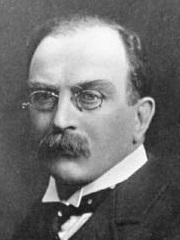 |
40. Theoretical physicist Joseph Larmor (1857-1942), older brother of Alexander below, was born 11 July in Magheragall, Antrim, and grew up there and in Belfast. He was educated at Queen's Belfast (BA 1874, MA 1875), where he was taught by John Purser, and at Cambridge (St John's, senior wrangler & Smith's Prize 1880, MA 1883). [JJ Thompson was 2nd wrangler.] He was professor of natural philosphy at Queen's Galway for WWWW 5 years, then spent nearly half a century at Cambridge, in 1903 getting the chair vacated by Stokes upon his death. Most of his research concerned electricity, thermodynamics, and the electron theory of matter. He had at least 4 doctoral students and authored or edited 6 books, including the influential Aether and Matter (Cambridge, 1900) and 2 volumes of the papers of Stokes (Cambridge, 1904 & 1905). He received honorary doctorate from RUI (1882), TCD (1893) and Cambridge (1920). Wikipedia / MacTutor / Family / Enc Brit / Ulster Bio |
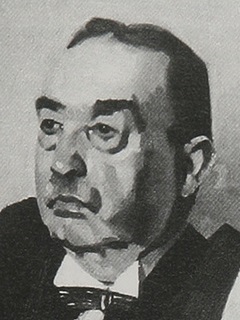 |
41. Theoretical physicist Alexander Anderson (1858-1936) was born 16 May in Camus, Coleraine, Londonderry, and was educated at Queen's Galway (BA 1880, MA 1881) and Cambridge (Sidney Sussex, 6th wrangler 1884, MA 1888). He was on the Galway staff for half a century, where he also served as president. He is credited as being the first to consider black holes as real physical entities, in a 1920 paper. He received DSc degrees from Glasgow (1901) and NUI (1908). Wikipedia / DIB / UCG / Cambridge / 1901 Census / 1911 Census |
 |
42. Robert Vance (1859?-?) was educated at Queen's Galway (BSc 1879, MSc 1880) where he had a senior scholarship in maths. Nothing else known. |
 |
43. Matthew Wyatt Joseph Fry (1863?-1943) was born in Clare and attended the Grammar School in Galway. He was educated at TCD (BA 1885, MA 1889), and spent his whole career there, holding the professorship of natural philosophy from 1910-1925. |
 |
44. Atwell Thompson (1864-1912) was born 14 May in Granard, Longford, and was first educated at Queen's Galway (BSc 1887) where he had a senior scholarship in maths. He then got an engineering degree from Oxford and spent the rest of his career in the USA. |
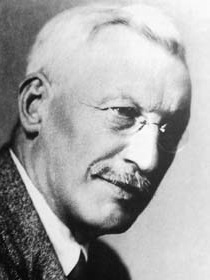 |
45. Alfred Dixon (1865-1936) was born 22 May in Northallerton, Yorkshire, and was educated at the University of London (BA 1883) and Cambridge (Trinity, senior wrangler 1886, part II 1887, MA 1890, ScD 1897). He was professor of maths at Queen's Galway for 8 years, then served in the same capacity at Belfast for 3 decades. His research included work on DE, binomial coefficients and hypergeometric functions. He is remembered for Dixon's identity and Dixon's elliptic functions. He wrote the book The Elementary Properties of the Elliptic Functions with Examples (Macmillan, 1894). QUB later gave him an honorary DSc (1932). |
 |
46. David Morton (1861-1950) was born in Ballymoney, Antrim, and was educated at Queen's Galway (BSc 1887) where he had a senior scholarship in maths. His career was spent as a clergyman in Tyrone. |
 |
47. Alexander Bain was educated at Queen's Galway (BSc 1888) where he had a senior scholarship in maths. Nothing else known. |
 |
48. Francis McCay was educated at Queen's Galway (BSc 1889, BE 1890) where he had a senior scholarship in maths. Nothing else known. |
 |
49. James Burkitt (1870–1959) was born 20 August in Killybegs, Donegal, and was educated at Queen's Galway (BSc 1891, BE 1892) where he had a senior scholarship in maths. His career was spent as a civil engineer, first based in Galway and then in Fermanagh. Wikipedia / Birds / 1901 Census / 1911 Census |
 |
50. John Paul was educated at Queen's Galway (BSc 1890) where he had a senior scholarship in maths. May have become a vet?? |
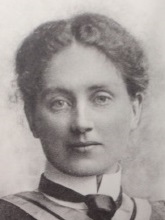 |
51. Hannah "Nan" Moylan (1867-1902) was born in Galway town and was baptised on 2 December. She grew up there and in Limerick, and was educated at first at UCD (BA 1891). She then taught at Alexandra College, and via study there and at Queen's Galway became the first woman in Ireland to get a BSc (1896). Like her earlier degree, it was in maths. After 5 more years at Alexandra she moved to teach in Cairo but tragically died at the end of the 1901-1902 academic year. [Photo and key bio info courtesy of John Lucey.] |
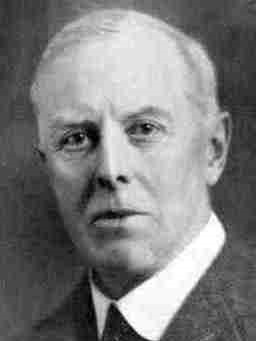 |
52. Mathematical and experimental physicist John Sealy Townsend (1868-1957) was born 7 June in Galway, son of Edward Townsend above. He was educated at TCD and later studied with JJ Thomson at the Cavendish Lab. He worked for over 40 years at Oxford, where he supervised doctoral students and authored 4 books. |
 |
53. William Houston (1871-1953) was born 18 January, possibly in Coleraine, Londonderry. He was educated at Queen's Belfast (BA 1892, MA 1896) and at Cambridge (St John's, 5th wrangler 1896, part II 1897). His career was spent at Cambridge, followed by 4 years at UCG, then he became assistant commissioner of education for Ireland. |
 |
54. Thomas Stuart (1875-??) was born 8 February in Gortin, Edenderry, Omagh, Tyrone. He was educated at Queen's Galway (BA 1895, MA 1896, and DSc by exam 1900) and at Cambridge (BA 1902, MA 1906?). His career was spent at Cardiff, Queen's Belfast, Woolwich, and then the University of Hong Kong (1913 to at least 1924). |
 |
55. Thomas "Tic" Cowlishaw (1873?-1945?) was born 14 January in Cheshire, England. He obtained RUI degrees (BA 1897, MA 1905) via private study. At first he taught at the Rolay Technical Institute (Salford), and in 1909 he published the book Examples and Homework in Preliminary Practical Mathematics. The rest of his career was spent as the headmaster of Eccles Grammar in Manchester. / Eccles (many mentions) |
|
56. Charles MacGarry (1877-1936) was born 11 November at the Model School in Galway town, and was educated at UCD (BA 1899, LLB 1907). His career was spent in the civil service, in the records office. |
|
|
|
|